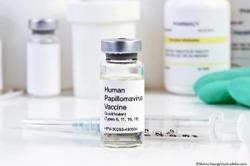© 2025 MJH Life Sciences™ , Patient Care Online – Primary Care News and Clinical Resources. All rights reserved.
IDWeek 2023, October 11-15: Preview of Topics and Presentations
IDWeek 2023: Imagine an intriguing hot topic in infectious disease and you'll find a session or 2 where you can learn more and then choose the next topic, rinse, and repeat.
The annual meeting of the Infectious Disease Society of America will kick off on Wednesday, October 11, in Boston, MA, at the Boston Convention and Exhibition Center where the presentations, plenaries, late-breaking science, poster sessions and more will continue through Sunday, October 15.
“…whether this IDWeek is your first-time experience or a regular item on your fall schedule, this year’s event is “like the Stone Soup book,” Heather Yun, MD, IDWeek chair, said in a conference preview. “Everybody brings forward their best to contribute.”
Following is a small sampling of the topic areas and specific presentations you may want to pencil in your calendar.
The future of COVID-19 vaccines
While the early success with development of COVID-19 vaccines was unprecedented and helped shift the tide of the pandemic's destructive spread, Michael Osterholm, PhD, MPH, director of the Center for Infectious Disease Research and Policy at the University of Minnesota, says they remain "good vaccines, not great." Osterholm maintains that“ We lack the durability of protection, even to the extent that we have challenges with variants.”
As part of the "Next-Generation COVID-19 Vaccines" session on Friday, October 13 at 3:15 pm, Osterholm will discuss “A Coronavirus Vaccine Roadmap: Advancing a Global R&D Agenda for Broadly Protective Coronavirus Vaccines.”
COVID-19 is only 1 among the prominent respiratory viruses top of mind this season and there will be a plethora of abstracts, posters, and symposia segments focused on influenza epidemiology and vaccine development as well as newly published data on respiratory syncytial virus as it presents and can now be treated with several first-ever vaccines for infants, pregnant women, and older adults.
Impact of climate change on ID
While humans feel the pressure to adapt to the effects of climate change – heat waves, flooding rains, uncontrollable wildfires, to name a few – fungi, microbes, and other pathogens are affected as well. As the IDSA point out, as pathogens go, so go infectious diseases. At 3:15 pm on Saturday, October 14, glimpse the future with experts in the session “Infectious Diseases from Climate Change and Natural Disasters,” where George Thompson III, MD, a professor of medicine in the department of medical microbiology and immunology at the University of California-Davis Medical Center and A. Krishna Rao, MD, MS, associate professor of infectious diseases at the University of Michigan will explain how and why the anticipated changes will be profound.
For a first look at what is happening right now, join Field Medical Officer Belinda Ostrowsky, MD, MPH, from the Centers for Disease Control & Prevention & Einstein/ Montefiore in New York on Friday from 10:30-11:45 as she moderates “Climate Emergency and Infectious Disease Stories form the Frontlines,” which will include a presentation by Andrea Morrison, PhD, from the Florida Department of health titled, “Reality Bites: Locally Acquired Malaria and Other Vector-borne Pathogens.”
How to end the HIV epidemic
Outreach to those hardest to reach, according to the IDSA, is foundational to bring the HIV epidemic to a full stop. These individuals are also at greatest risk for the disease and include the unhoused, sex workers, and those who use drugs. During “Ending the HIV Epidemic: Cutting-Edge Models of Care,” on Saturday from 10:30 to 11:45, hear details from 3 clinicians who have developed outreach programs with services tailored to the specific needs of these vulnerable populations. The session will be moderated by Wendy Armstrong, MD, professor of medicine at Emory University School of Medicine in Decatur, GA, and infectious disease specialist Darrell McBride, DO, from the Geisinger Medical Center, in Danville, PA.
Disparities in IP, AMS
Infection prevention and antimicrobial stewardship are as susceptible to disparate practice as any other aspect of health care, the IDSA asserts. On Thursday, Oct. 12, at 1:45 pm speakers at the session “Identifying and Tackling Disparities in Infection Prevention and Antimicrobial Stewardship,” will examine inequities in hospital acquired infections and antimicrobial use and what drives them and also explore disparities associated with infection prevention activities in individual practice settings. Recent studies will be reviewed that look at the greater likelihood for patients of Asian and Hispanic race to develop catheter-associated urinary tract infections and the higher incidence of hospital onset staph infections and higher incidence of morbidity and mortality from C difficile among Black patients.
Emerging pathogens, diagnostics, treatments
There will be many opportunities to preview with experts the infectious disease threats they have on radar but there will also be sessions focused on how the evolution of new diagnostic tools and novel technologies driving vaccine and treatment development will meet those challenges head on. On Friday October 13 from 10:30 to 11:45, Aneesh K Mehta, MD, from Emory University School of Medicine will co-moderate “Where Are We Now? Lessons Learned from Recent Emerging Infectious Disease Challenges.” During the “Hot Topics in Public Health” session (1:45 – 3:00 pm), Maria Van Kerkhove, PhD, COVID-19 Technical Lead and Emerging Diseases and Zoonoses Unit Head from the World health Organization will present “The Hottest Outbreaks of 2023.” A series of oral abstract presentations will be moderated by Angela Campbell, MD, MPH, from the Centers for Disease Control and Prevention, during “Emerging Infectious Diseases,” on Friday, October 13, from 3:15 – 4:30 pm. Similar moderated oral abstract sessions will focus on “Updates in Diagnostics” (Thursday October 12, 1:45-3:00 pm); “Hit me with Your Best Shot: Vaccines to Reduce Antimicrobial Resistance” (Wednesday, October 11, 1:30 – 3:15 pm) and plenty more.
You can find the full IDWeek program here, including registration information and details on how to access the meeting presentations virtually in real time and where to find enduring materials in the months afterward.
Related Content:




